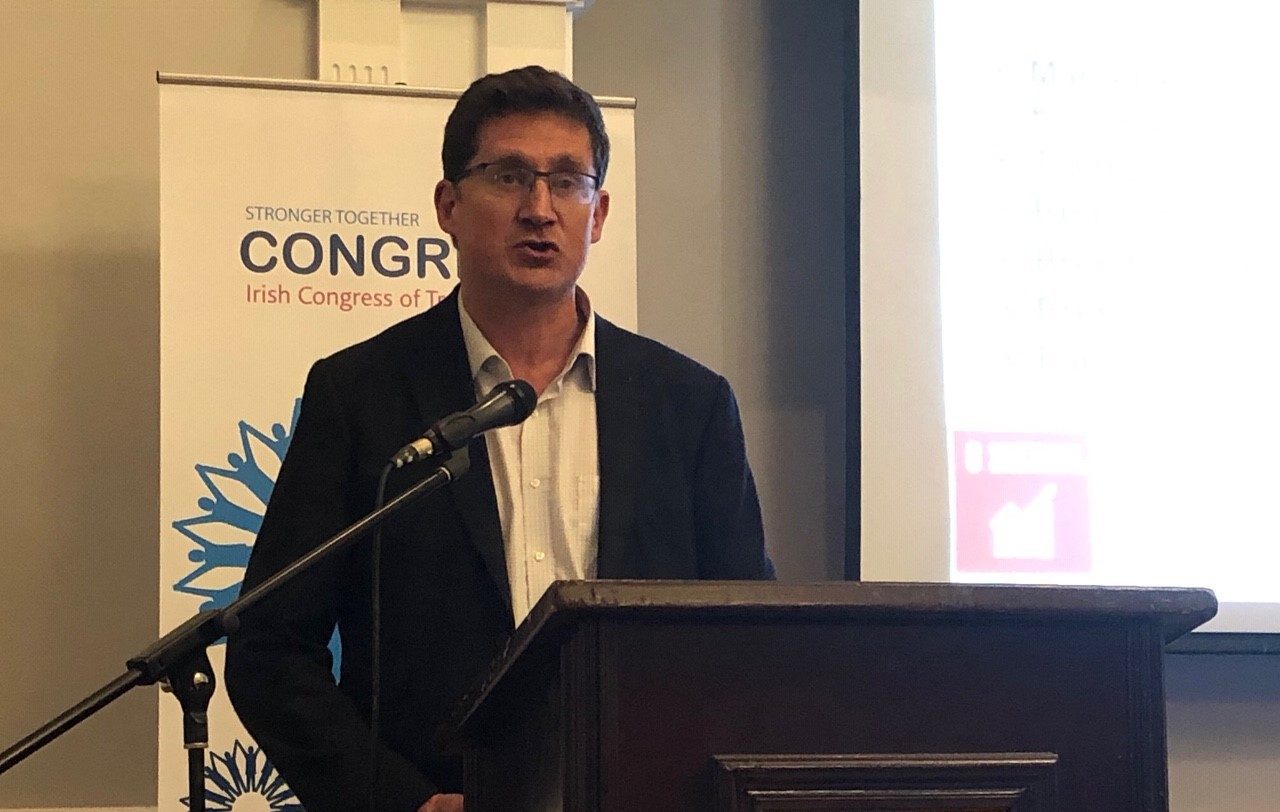Reading a recent Irish Times editorial regarding agricultural emissions, I can only conclude that ‘non-science’ is alive and well.
The core assertion by the newspaper – that, in essence Irish milk and meat are fossil fuels – is Flann O’Brien-esque in its scientific depth.
Agriland readers might recall the Flann O’Brien character / scientific genius, de Selby, whose principal hypothesis was about the transfer of molecules from people to bicycles.
So that when a man was found guilty of murdering his neighbour, his bicycle was hung in his stead. This is more of it.
Agri emissions target
Before I return to the ‘non-science’ issue, could I clarify that the notion that lower agricultural emissions cuts might mean higher targets in other sectors, is a policy decision, taken by the Minister for the Environment Eamon Ryan.
New Zealand chose separate accounts for methane and carbon dioxide (CO2) and so could Ireland, in line with the Paris accord, which explicitly states that measures to reduce emissions must not impact food production.
However, Minister for Environment, Eamon Ryan decided against separation. So it is a Green Party choice that transfers a lower agricultural emissions target across to other sectors.

Over the last three years in particular has been the perverse view of the environmental lobby that suppression of the Irish agri-food sector is the key to delivering on Ireland’s climate action commitments.
It is very clear that the suppression of Irish agri output is now part of a mainstream gesture-based public narrative.
In addition to the convoluted scientific gymnastics that attempts to define the ‘climate emergency’ as being about cows rather than carbon, it ignores what many agencies such as the World Food Organisation have said, i.e., if Ireland does not produce the food, it will be produced in higher carbon emitting or non-regulated countries.
The public narrative is also totally dismissive/oblivious of any notion of food security despite the huge shortage and price problems which both the war in Ukraine and the surge in energy/input costs have caused in 2022.
Economic impact
Let’s not forget the negative impact on the Irish economy if there is suppression of the agri-food sector, with its 260,000 jobs supported, €15 billion in exports and €16 billion pend in the Irish economy.
Making the climate debate about cows and not carbon also ignores the government’s commitment in the Climate Action Bill to cater for ‘the special economic and social role of agriculture, including with regard to the distinct characteristics of biogenic methane’.
There are very substantial action programmes outlined in the food vision processes that are well capable of delivering improved environmental impacts and lower emissions.
This obsession with reduced agricultural output has become so bitter and twisted that no reference is made in the outpourings of negativity against Irish agriculture to the impact of fossil fuels on global heating.
A lot of the nonsense proselytised about beef and dairy impacts not only ignores the concept of food as a source of nutrition, but consistently refuses to accept verified measurements of Ireland’s very low carbon-emitting grass-based production systems.

Meat or no meat?
Observed consumer behaviour, as indicated by the EU Commission and other agencies, is that consumers are looking for lower-emitting sources of meat and dairy rather than jumping completely into plant-based diets.
Consumers are also extremely uncomfortable with what can be the highly processed nature of plant-based options versus the deeply held view that milk and meat are natural foods.
The catastrophic impact on the national economy, not to mention on rural and regional economic activity, is rarely mentioned.
If it is mentioned, it is some vague statement that farmers were misled into pursuing growth, and Just Transition as a replacement for current agri output is proffered as a standard operating procedure (SOP).
The Irish food sector turns over approximately €30 billion annually and the value of livestock, meat and milk-based output within that, is approximately €15 billion, supporting 88,000 farms and 30,000 direct jobs.
Throwaway suggestions by the anti-agriculture lobby that farmers should walk away from this hugely important, deep-rooted rural business to plant vegetables on a wing and a prayer, shows not only contempt for the impact on the national and rural economy, but also how superficial the knowledge of real world Irish and European food systems and markets is.
Suppression of Irish agri output is not a responsible or balanced response to our current or future economic and environmental challenges, in the same way that growing lettuce on west-facing windowsills was not a comprehensive response to Covid-19 in February 2020.
